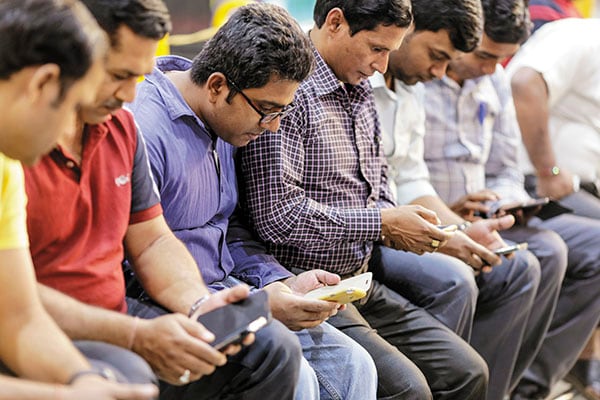
Digital inclusion will lead to inclusive economic development: Vijay Shekhar Sharma
Bringing the digital revolution to every household and incentivising the process can ensure overall economic development

Infrastructure for internet connectivity
A recent World Bank report says, “A 10 percent increase in broadband penetration increases the per capita GDP by 1.38 percent in developing countries.” The internet has become an enabler of growth and it needs to be promoted with as much enthusiasm as other physical infrastructure like transportation and power. Broadband needs to be given its due stature as the lifeline of the Digital India project and efforts must be made to secure its accessibility across the nation. It will be good to allocate a portion of the budget to create infrastructure for internet connectivity across India. In addition, the government should consider developing a targeted plan for implementing the objective of internet connectivity across India through identified bodies. It may be worthwhile to develop a road map for public private participation with telecom operators.
Tax rebates on smartphones
Smartphones have proved their immense utility as a medium of information transfer and financial inclusion. Their utility is not limited to select segments of society. Instead, smartphones can become an enabler for all sections, including farmers, small businesses and students. Smartphones also possess the potential to become a key instrument of financial inclusion and can take us towards a cashless society. We would like to see tax exemptions on smartphones that are priced at less than Rs 3,000. In addition, the government can give a push to domestic handset manufacturing by introducing tax sops.
Tap USOF to provide free data
The Universal Service Obligation Fund (USOF) was set up to enable network expansion in rural and remote areas. There is a large amount of unutilised funds with the USOF. This fund can be used to subsidise the cost of data for select customers. A certain limit of about Rs 50 per month to every customer can be set.

Smartphones can be instrumental in India becoming a cashless society
Tax sops for digital transactions
Taking physical cash out of the economy has immense benefits. It not only saves cash-handling costs and creates transparency in transactions, but also leads to a digital trail of transactions. Transaction history can be an important enabler of financial inclusion by making individuals and businesses more likely to get the right credit and insurance products. Having an incentive mechanism to promote digital transactions may lead to desired results. The Union Budget can include a tax benefit at the point of sale if the payment is made through cashless means like cards, wallets or bank transfers. Such a move will incentivise customers to opt for cashless modes of payment wherever possible. Similarly, there can be a tax rebate for shopkeepers accepting payment through digital channels.
Passage of GST Bill
The approval of the Goods and Services Tax (GST) Bill in the Lok Sabha is being considered as a ‘game changing’ reform with the potential to metamorphose the country into a unified, robust market with reduced transaction costs and limited economic volatility. We also hope that there will be more consolidation of multiple departments to better address compliance issues. Smaller businesses often end up grappling with multiple taxes. The GST is expected to play the vital role of replacing all indirect taxes in India and will purge the current central excise duty, service tax as well as additional customs duties by the Centre.
Standardised guidelines on taxation of ecommerce sales
State-specific regulations on inter-state sales have become a major problem for ecommerce participants. These cause delays in the final product delivery to the customer and also increase costs, and hence hamper the ecosystem as a whole. Standardised guidelines regarding taxation of ecommerce sales will help everyone.
Promotion to credit and insurance firms to take financial inclusion instruments across the country
Financial inclusion is one of the most important goals at hand for India. Credit and insurance are two of the most important financial instruments that can play a critical role in improving the overall financial well-being of individuals and businesses. However, traditional players have not yet succeeded in reaching the grassroot level. There is significant scope for innovation and a large number of fintech companies have emerged to extend credit and insurance to largely excluded customer segments. As an industry promotion mechanism, companies operating in this space can be granted tax benefits for a limited period. The government can also set up an institution similar to the Deposit Insurance and Credit Guarantee Corporation (DICGC) to insure credits up to a fixed amount.
(This story appears in the 30 November, -0001 issue of Forbes India. To visit our Archives, click here.)
X




